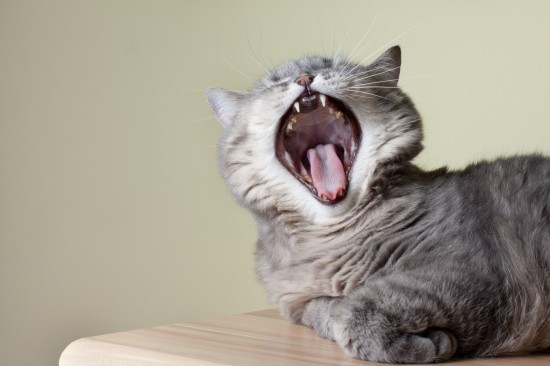
As its name suggests, the feline immunodeficiency virus attacks your cat's immune system. It eventually disables the immune system's ability to battle cancers and infections. The feline immunodeficiency virus is usually targets roaming cats. It can also affect larger felines such as tigers, lions and leopards.
Transmission
The feline immunodeficiency virus is shed in saliva. Therefore, it can easily be transmitted to your cat if he is bitten by an infected cat. The virus is rarely transmitted through the mother's milk. However, transmission can occur if the mother is infected with the virus during lactation or gestation.
Symptoms
The feline immunodeficiency virus causes a variety of early symptoms such as swollen lymph nodes, lethargy, and weight loss. Many cats also suffer from chronic oral infections. The feline immunodeficiency virus can also cause upper respiratory problems in the form of nasal discharge and sneezing.
Diagnosis
The feline immunodeficiency virus can be detected by testing for antibodies against the disease. The test may take up to 12 weeks before it is able to detect these antibodies. The results are available quickly, usually taking no more than 20 minutes. However, the main test to detect the feline immunodeficiency virus can sometimes render false positives. Therefore, if there is a positive result, it's usually best to confirm the diagnosis with a Western blot assay.
Treatment
Unfortunately, there is no cure for the feline immunodeficiency virus. The main cause of death for cats affected with this virus is from secondary infections. Therefore, you will need to eliminate stress and exposure to other animals so that your cat doesn't get sick. Antibiotics can also be used for the secondary infections. You should also make sure your cat has plenty of fluids and follows a good diet.
Prognosis
The amount of time a cat affected by the feline immunodeficiency virus has left varies widely. Most cats can live for many more years after diagnosis without showing any symptoms. However, a cat diagnosed in an advanced stage of the disease will usually have less than a year remaining.
 Five Breeds Of Dog That Will Keep You On Your Toes!
Five Breeds Of Do
Five Breeds Of Dog That Will Keep You On Your Toes!
Five Breeds Of Do
 Is A Giant Schnauzer The Right Choice Of Dog For You?
Is A Giant Schnau
Is A Giant Schnauzer The Right Choice Of Dog For You?
Is A Giant Schnau
 Dental Implants - For Dogs ?
Dental Implants -
Dental Implants - For Dogs ?
Dental Implants -
 Build the Chicken Houses Like It Is Your Very Own
Build the Chicken Houses Like It Is Your Very Own
Build the Chicken Houses Like It Is Your Very Own
Build the Chicken Houses Like It Is Your Very Own
 Why Does My Cat Have Bad Breath ? The Five Top Reasons
Why Does My Cat H
Why Does My Cat Have Bad Breath ? The Five Top Reasons
Why Does My Cat H
Copyright © 2005-2016 Pet Information All Rights Reserved
Contact us: www162date@outlook.com